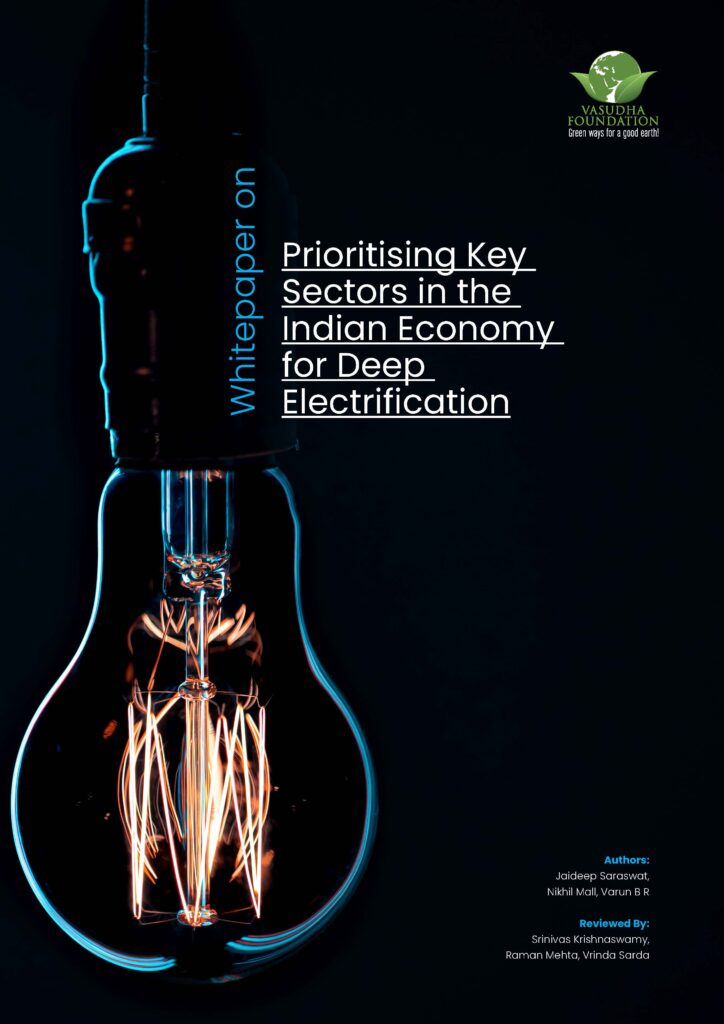
India has committed to reducing the Greenhouse Gas (GHG) emission intensity of its Gross Domestic Product (GDP) by 45 percent below 2005 levels by 2030 at the COP 26 conference held in Glasgow. It aims to achieve the net-zero target by 2070. Several econometric studies have established that energy usage by a country has a positive correlation with its Gross Domestic Product (GDP). India being a developing economy, will have to strike a balance between registering continuous GDP growth and decarbonisation of its energy and other energy-intensive sectors. This necessitates enhancing resource efficiency and exploring new clean technologies to meet future energy demand
.
Electrification is emerging as a major trend to achieve deep decarbonisation in energy markets around the world. It refers to the process of replacing technologies that use fossil fuels with technologies that use electricity as a source of fuel. And depending on the resources used to generate electricity, electrification can potentially reduce emissions.
Therefore, if policymakers seek to decarbonise the hard-to-abate sectors, replacing fossil fuels with electricity as a fuel source may currently be one of the only technologically viable options. More importantly though, electrification of non-power sectors would consolidate carbon mitigation efforts and allow policymakers to focus on decarbonising the electrical grid. This might prove far more feasible as opposed to decarbonizing the non-power




